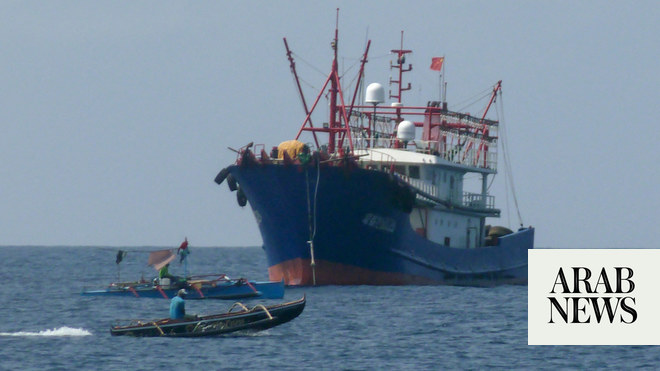
Two Chinese fishing vessels have been detained by Vanuatu authorities amid allegations they were fishing illegally in the Pacific nation’s territorial waters.
This is the first time that Chinese vessels have been accused of illegal fishing activities in Vanuatu’s territory, but their confinement comes just a month after Palau detained a Chinese-flagged vessel reportedly illegally harvesting sea cucumber, or beche-de-mer, in the western Pacific state’s territorial waters.
The Dong Gang Xing 13 and Dong Gang Xing 16 were fishing in Vanuatu’s northern waters near the remote Torres islands, authorities alleged.
Vanuatu’s department of fisheries, along with the police maritime wing, and a French naval reconnaissance plane from New Caledonia monitored the ships before they were detained by a Vanuatu patrol boat.
The two fishing vessels berthed briefly in the northern town of Luganville, a few hundred metres from a Chinese-funded wharf that has been the subject of widespread rumours it could serve as a Chinese military base.
The ships were then instructed to sail for Port Vila, where they have been berthed at an unused wharf in the capital.
“The crew on the fishing vessels will be subject to further investigation after undergoing quarantine,” Vanuatu police said in a statement.
In the Palau incident last month, the vessel, six auxiliary boats and 28 crew were intercepted by a patrol boat at Helen Reef, in Palau’s territorial waters, and escorted to the main island of Koror.
The ships and crew were ultimately released after being detained for several weeks, but the Palau government was angered by China’s intransigence over the issue. The new president of Palau, Surangel Whipps Jr told the Guardian government officials and ministers had repeatedly telephoned Chinese government officials but had been ignored.
“They don’t seem to care and that is unacceptable. They should take responsibility for their people, and it is like they encouraged them by ignoring them. It’s not good.”
Whipps Jr said Palau would always defend its borders and its maritime territory. “Other countries that don’t respect other countries’ borders are not acceptable,” Whipps said.
“Stealing and offering bribes, that’s just got to stop, illegal fishing has to stop. As countries, we should also be responsible to our people and tell them not to go to other countries and do these kinds of things,” he said.
The Chinese government has not commented on either of the detentions.
Last month, foreign ministry spokeswoman Hua Chunying said China was “a responsible fishing country”, with “‘zero tolerance’ for violations of relevant laws and regulations committed by distant fishing vessels”.
“We have… strengthened international cooperation, and done a great deal of fruitful work in jointly combating illegal fishing and promoting the sustainable development of fishery resources with other countries.”
A report last year from the Overseas Development Institute (ODI) found China had the world’s largest distant-water fishing fleet, with nearly 17,000 vessels.
The ODI also found almost 1,000 Chinese vessels were registered in other countries and that at least 183 vessels in its fleet were suspected of involvement in illegal, unreported and unregulated fishing.












